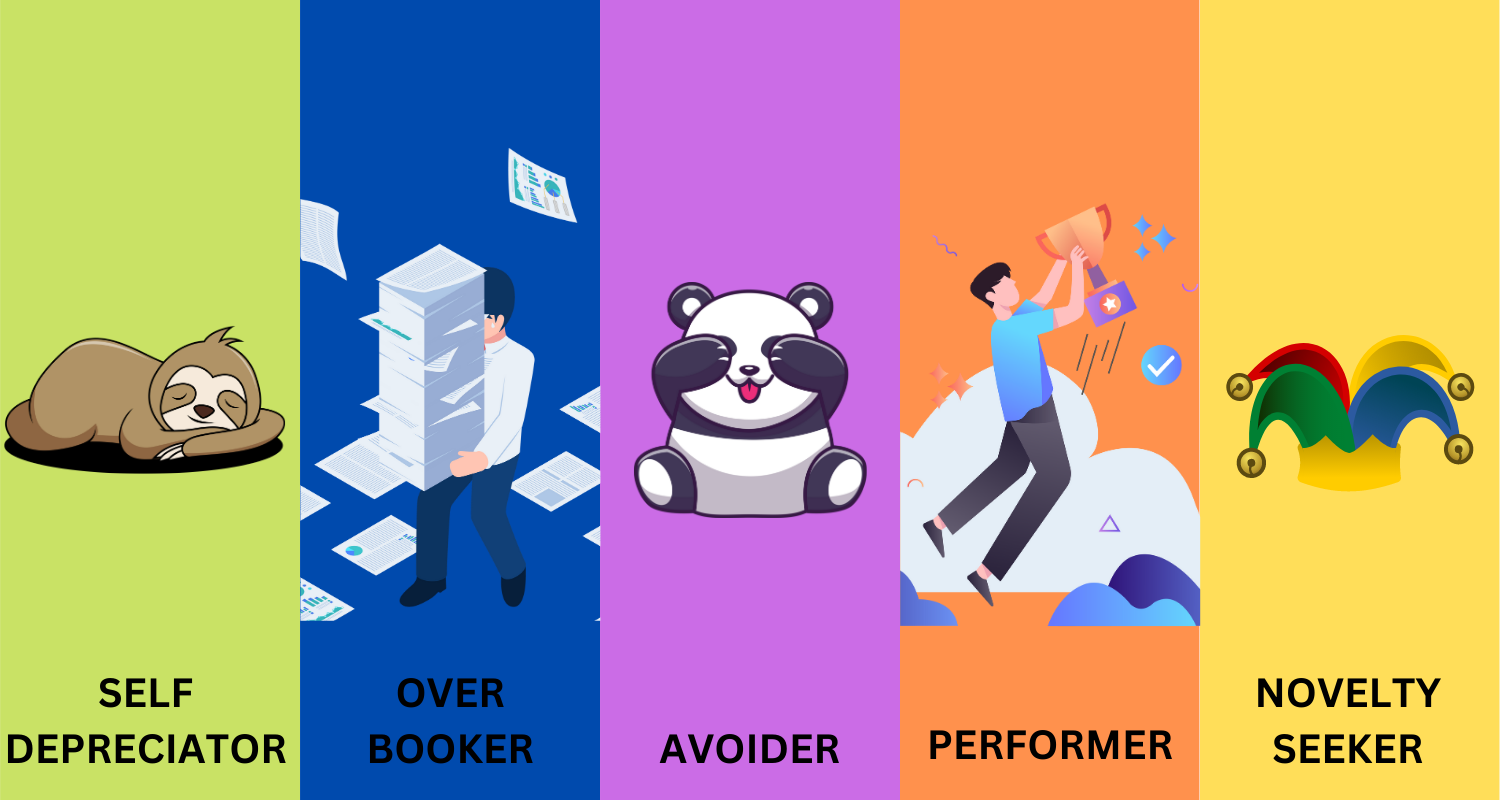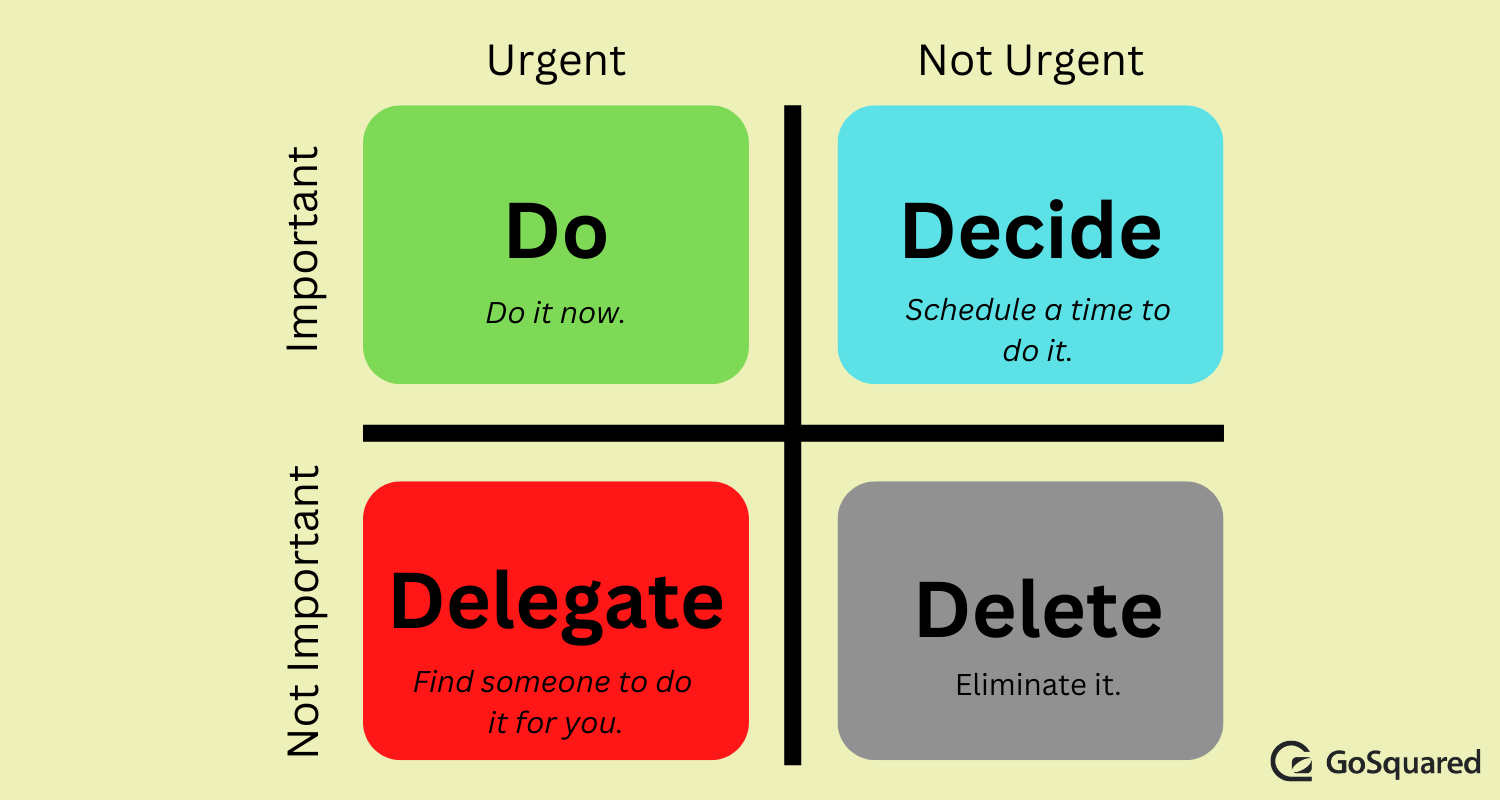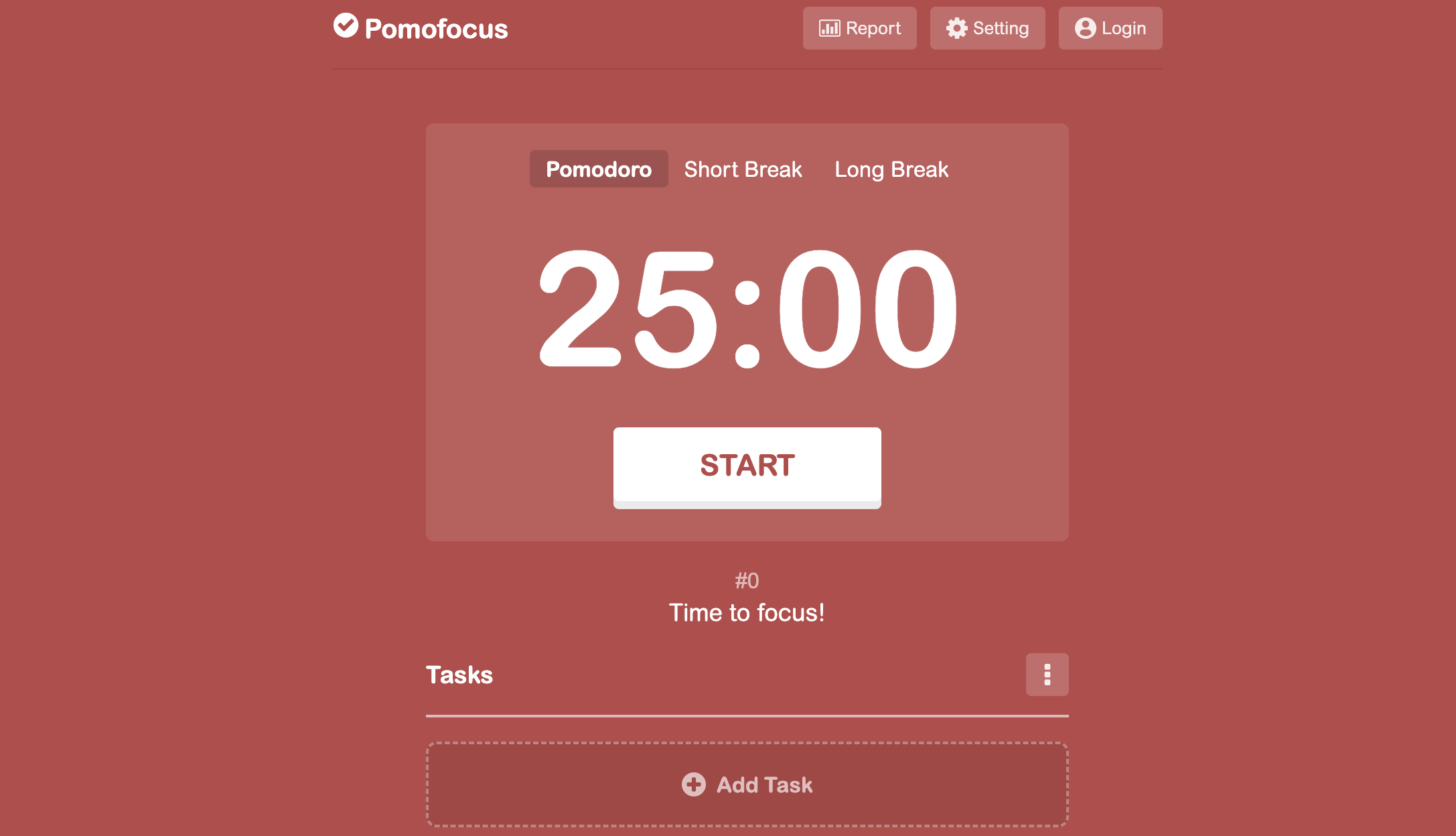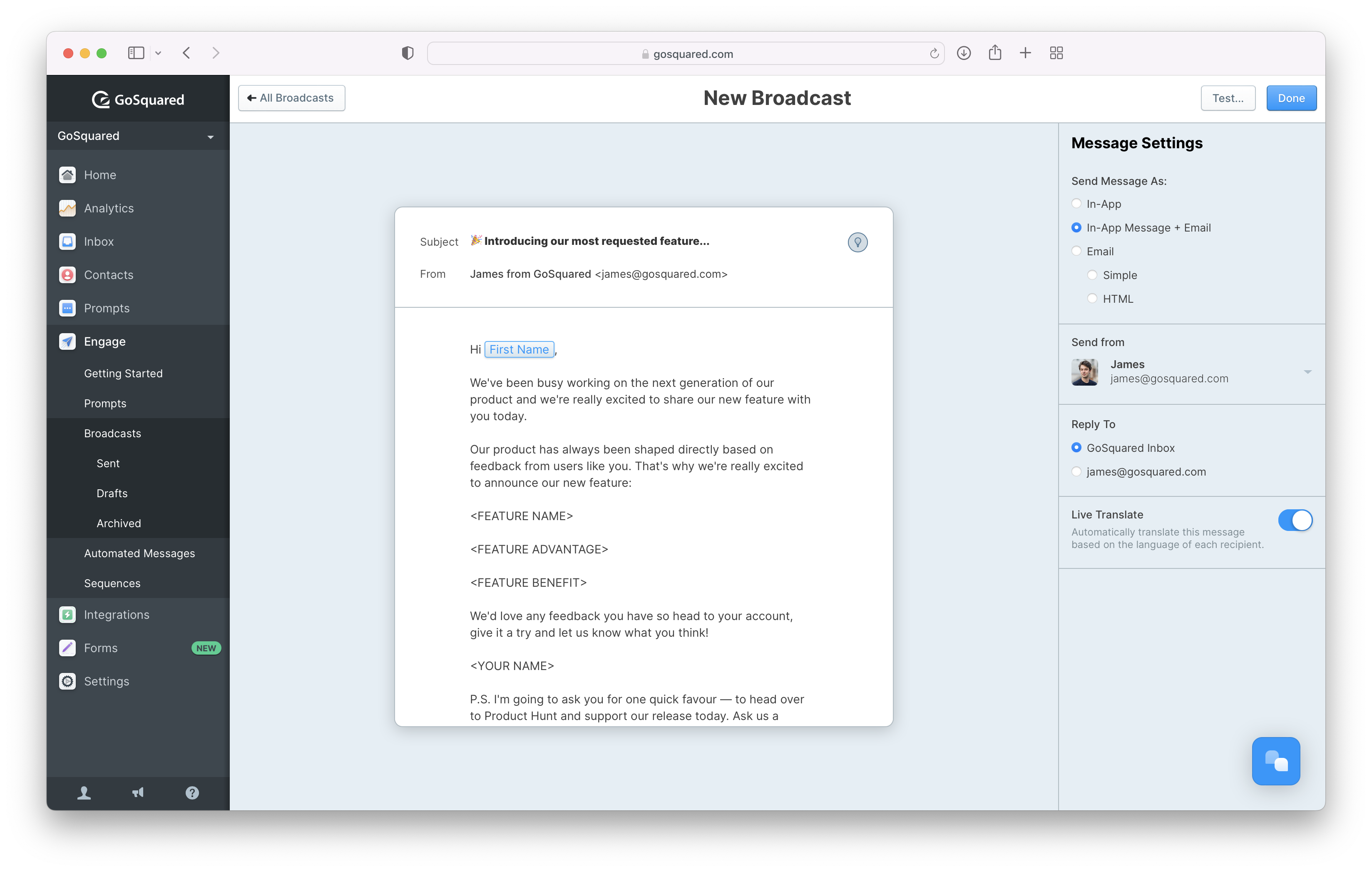Procrastination is the enemy of productivity.
Our distractions also cost a pretty penny too. Research has shown that procrastinating costs the US economy $1 trillion per year.
But more than that, procrastination is stopping you from reaching your goals. So as tough as it might be, you have to quit procrastinating if you want to be successful in all that you do.
From browsing social media to daydreaming, or even reading too much news during the day – all of us can struggle to keep our focus on the most important tasks.
Wherever you live, and regardless of whether you’re a CEO or employee, procrastination affects everyone to some degree. So why can’t we complete a task without getting distracted by time-zapping entities? More to the point, what can we do about it?
Whatever is stealing your attention away from what matters, here is an overview of why you procrastinate, along with our top 7 steps to quit it for good.
(…Stay focused now!) 😉
Procrastination Definition
Procrastination means delaying doing something that should be done. So instead of focusing on that task, you do something else instead. The word originates from the Latin words ‘pro’ which means forward, and ‘crastinus’ which means of tomorrow.
Often, procrastinating involves filling your time with non-productive tasks such as browsing social media or even straight-up daydreaming. Either way, by procrastinating your original task hasn’t been completed in a timely manner, if at all because your focus slipped.
In contrast, had you not procrastinated, you would have completed that task in one go. It would have taken you far less time, and been less of a hassle because your distractions didn’t drag the task out.
Procrastination Stats
- Employees who are not actively engaged in their work cost the global economy $7.8 trillion in lost productivity, equivalent to 11% of global GDP – Gallup
- Procrastination costs the UK economy £345 billion per year in lost productivity – Palife
- The average UK worker costs their employer £10,605 per year due to procrastinating while at work – Palife
- People in the UK check their smartphones once every 12 minutes of their waking day – Uswitch
- 20%-25% of all adults are chronic procrastinators – Mcleanhospital
Step #1 – Identify The Real Reason Why You Procrastinate
The question of ‘why do people procrastinate?’ is a complex one to answer.
That’s because while the common denominator may be boredom, all of us have different reasons for getting distracted.
Contrary to popular belief, procrastinating doesn’t automatically mean you’re ‘lazy’. In many cases, there can be an underlying reason why you can’t hold your attention on a particular task. This can be due to your learning style, or even your current mindset, i.e. feeling tired or overworked.
Some people also procrastinate because they simply don’t find their work, or a certain task stimulating enough.
In general, the top reasons people procrastinate are due to:
- Avoidance
- Trouble focusing in general
- Fear of failure
- Poor mental health
- Feeling bored by the task
- Being overwhelmed by the complexity of the task
It’s good to identify if any of the above apply to you. That’s because it’s no good looking for solutions on how to stop procrastinating if you don’t understand your personal reasons for doing so.
Remember, some of these reasons may be out of your control, or may require unique adaptations to how you work that isn’t a one-size-fits-all approach.
The Five Types Of Procrastinators – Which One Are You?

While there may be many reasons why you procrastinate, global thought leaders have narrowed this down into five main personalities.
Seeing which character you identify with is designed to help you gain a deeper understanding of your inability to focus, so that you have a better chance of tackling the root cause. So here they are.
The Self-Depreciator 🦥
This type of procrastinator is tough on themselves. They’ll call themselves ‘lazy’, ‘unmotivated’ or even tell themselves they have a lack of talent. When in reality, they are often tired. They may have a stubborn personality, and don’t know how to take better care of their own needs.
The solution: Nobody is perfect. But you’ll certainly be performing below par if you never take the time to recharge. Your focus will return once you have the energy, but only you can make it happen.
The Overbooker 📆
Did you know that the longer our workday, the less productive we typically are? Filling our schedules to the max may seem like the total opposite of procrastination.
But unless we are using each minute to complete genuine work, we are simply stretching out the day without really achieving anything.
The solution: Try shorter working hours or even a four-day week. Commit to completing tasks within a specific timeframe of the day, and only reward yourself once your work is genuinely done. Be mindful of holding yourself to unrealistic deadlines.
The Avoider 🫣
The classic procrastinator is the person who deliberately avoids everything. They will have no intention of completing a task and will seek out as much distraction as possible with little self-control.
The solution: Total avoidance of your work often indicates you’re unhappy with the job itself. You need to discover whether you have a career mismatch, or if there is a more engaging way of carrying out the general task. Avoidance may also be due to a lack of understanding, or a perception that the task is too complicated, so see if you can break it down into smaller steps.
The Performer 🤸♂️
Some people struggle to get started on a task, due to the belief they work better under pressure. Performers put an enormous amount of pressure on themselves in the 11th hour, but spend the rest of the time procrastinating.
The solution: Have the discipline to establish a start date and commit to it. Accept that last-minute saves aren’t efficient nor sustainable when so much of the working day is wasted.
The Novelty Seeker 🃏
The final type of procrastinator jumps from task to task without ever finishing anything. Many entrepreneurs fit the novelty seeker procrastinator type. While having amazing new ideas is great, taking your focus off what needs your attention right now can soon halt progress altogether.
The solution: Learn to prioritise on current tasks before moving on to new ones. It’s fine to designate time for coming up with new ideas, but never do this at the expense of any outstanding tasks. Otherwise, you’ll continue to jump from idea to idea, without ever making any real progress.
Enjoying this post so far? Sign up to the FREE GoSquared newsletter, and we’ll send more helpful content just like this straight to your inbox. 🕺✉️
How To Stop Procrastinating For Good
Figuring out which type of procrastinator you are is the first step to quitting procrastinating for good, or at least cutting the amount of time down in which you do so.
From there, you need to make changes to how you think and ultimately, how you work so that you can quit procrastinating once and for all. Here’s how you go about that.
Delete Your Distractions
Regardless of your personal reason for procrastinating, or even the type of procrastinator you identify with, the simple fact is that you procrastinate because you’re bored.
In today’s world, we’ve never had so many distractions at our fingertips. Even the way videos are edited now conforms to shorter attention spans, with YouTube shorts being one such example. But what if you removed all distractions from the room so that you only had the option of completing that task?
Studies have shown that when you only have the company of a task and no other distractions, procrastination can be cured. That’s because the brain hates being bored, and given the only option of sitting in a blank room for hours, your brain would rather be getting on with that task. Yes, really!
So consider what is most distracting in your day and get rid of it. Only allow yourself that external simulation once your tasks are done. No cat videos, no instant messages, no news articles – no anything that isn’t that exact task.
Adopt The Eisenhower Decision Matrix

If you’re going to take advice from anyone, why not ask the president? President Eisenhower to be exact, as he too came up with a way of deciding what was worth his time, and what wasn’t. By following this method, you can also rule out tasks which cause procrastination due to a lack of prioritisation.
Within The Eisenhower Decision Matrix, the format is quite simple. Tasks have four categories, and depending on their urgency and importance, you choose whether you do it right away, decide on another time to do it, delegate it to someone else or delete the task altogether.
For entrepreneurs where time is tight, this method can help you keep on track. After all, you can’t invent more hours in the day – you have the same as everyone else.
So use your ‘productive time’ wisely, and also consider when you are most alert, i.e. early bird or night owl, and use that alertness to focus on the most important tasks first.
Play To Your Strengths
If procrastination is a daily problem, then consider whether you’re playing to your strengths, especially if you’re procrastinating within your job.
Granted, you may be in the right career but lack self-control, hence you are constantly distracted. But beyond this, if you genuinely feel fulfilled by your work, then you should be actively engaged in it. Constantly looking for alternate stimulation would suggest otherwise.
Consider that if you are in the right job but procrastinate, you’ll never reach your potential. So just like deleting distractions while you’re working, you also need to know that you are working toward a career goal you’re genuinely enthusiastic about.
If you feel like you’re just drifting in life, you’ll keep allowing yourself to get distracted because the task you are doing isn’t taking you in the right direction even when you do put the effort in.
Work On Your Weaknesses
Allowing yourself to be constantly distracted may feel like you’re giving into your brain’s request for dopamine. But in reality, you aren’t enjoying what you do, and you’re allowing yourself to put in minimal effort.
By procrastinating, you’re giving yourself a reward without earning it. While that may seem harmless enough, it will soon catch up with you, especially when the results don’t match the length of time you put into your working week.
Instead, procrastination needs to be viewed as the enemy it is. That’s because procrastinating isn’t the same as downtime, it is the distractions that are standing in the way of your progress. Viewing procrastination as a weakness is therefore a must, especially if it’s something you do on the daily.
Use Pomodoro Timer

In a Lost & Founder podcast episode aptly titled ‘Time Management’, GoSquared CEO James Gill shared his tips for productivity. We think his advice is excellent to help you learn to focus and in doing so, avoid procrastination.
Here is a snippet of what James said.
“I wouldn’t be able to do a topic on time management without talking about one of my favourite techniques, and that’s the Pomodoro technique.
The Pomodoro technique for those who haven’t come across it is essentially a technique that gets its name from an Italian tomato timer.
In Italy they have these timers for cooking tomatoes perfectly for a pasta sauce. The timer is for around 20 minutes. Off the back of this people have started using that timeframe to break up their day into chunks.
The reason I’ve found this helpful in the past is that sometimes you can be thinking about a mega task. Something that you really, really don’t want to do. But I’ve adopted the Pomodoro technique in the past to get around those tasks.
I know that at the end of that 25 minutes, I’m going to get a break or I’m going to get a reward of some sort, and that break might just be going and stretching my legs or making a cup of tea.
But it can really help you break the back of some of those bigger, more daunting tasks. And I’d highly encourage just trying it out, maybe for an afternoon or a morning and seeing if it helps you get through some of those tougher tasks on a difficult day.”
Watch Out For Toxic Productivity
Finally, it’s impossible to avoid procrastination if your entire life revolves around the pursuit of making money. Once again, entrepreneurs are commonly guilty of toxic productivity, in that every waking hour is related to growing their business.
On the one hand, hustle culture should be applauded. But too much of anything is never a good thing, and if you never take the time to recharge your batteries, it’s no wonder you procrastinate.
So make sure that you have a good work/life balance, and that those emails don’t get answered at all hours of the day and night. Otherwise, how can you ever be expected to focus when it counts?
GoSquared – Productivity Tools To Work Smarter Not Harder

Now you know why you procrastinate along with how to fix it, all that’s left is to ensure the time you do spend working is put to the best use.
GoSquared makes award-winning tools to supercharge your email marketing and website analytics efforts. Our customer engagement platform Engage makes it easier than ever to communicate with your customers, so that you can send more intelligent campaigns. Plus, you can best monitor the results of those campaigns within just a couple of clicks.
We also have a new tool EcoSend, which is our climate-conscious email marketing tool, with paid plans starting at just $49 per month.
Want to talk with us directly about our products Analytics, EcoSend or Engage? Drop us a message and our team will be right with you.


